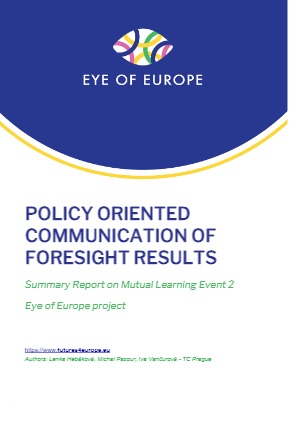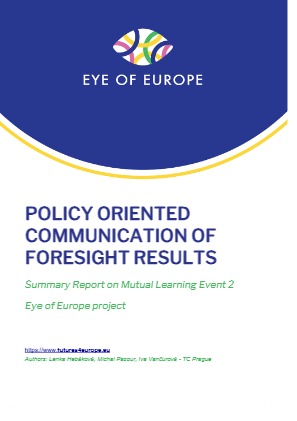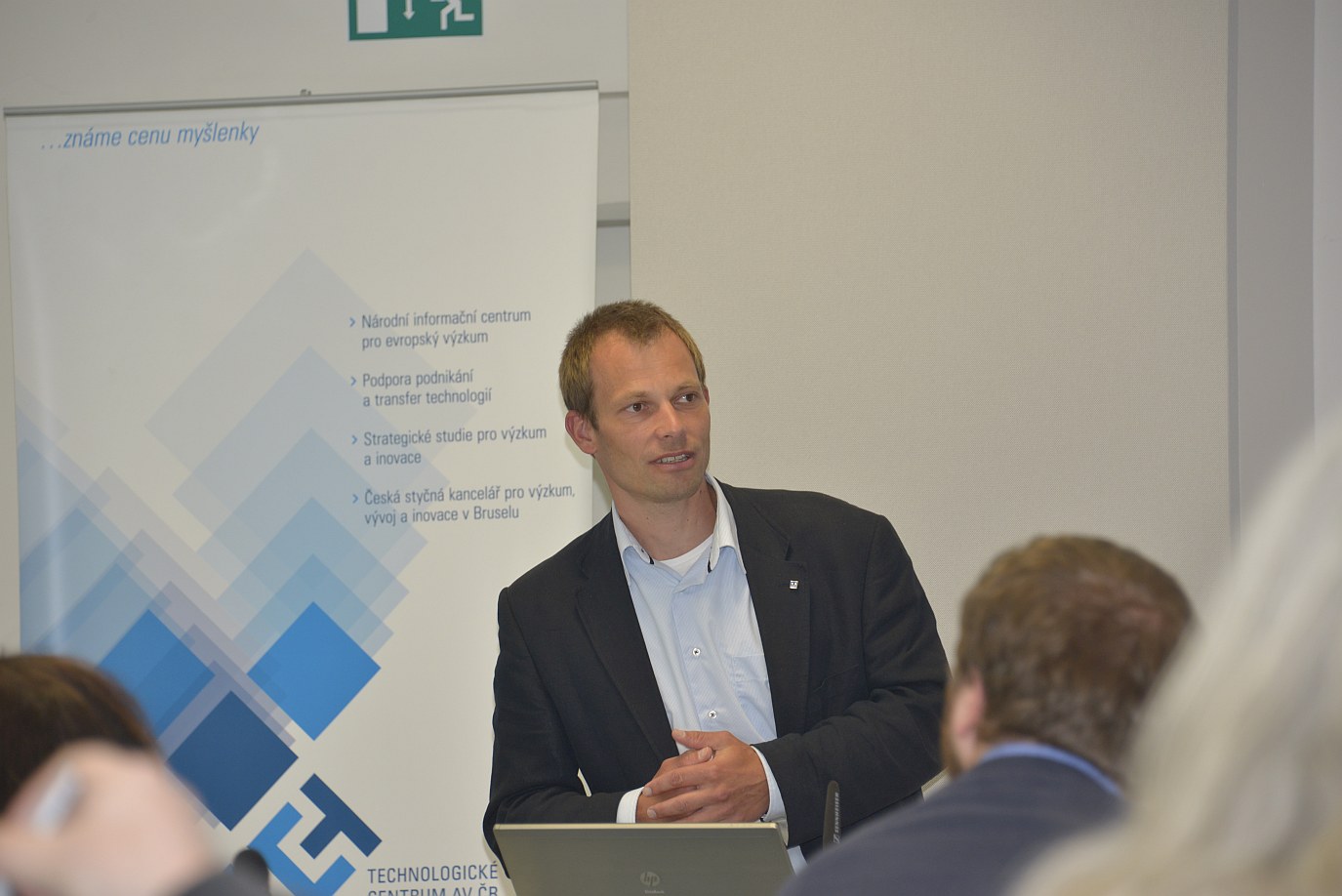Last Edited: 4 months ago
Eye of Europe Mutual Learning Event: Policy Oriented Communication of Foresight ResultsSeptember 2024
Summary Report
The report provides a brief overview of the insights captured during the second Mutual Learning Event (MLE2) which was held online on September 26, 2024.
The MLE2 addressed topic of policy oriented communication of foresight results.
The topic brought information on:
• The strategies for effective communication of foresight results to policymakers and gaining stakeholders buy-in,
• The role of clear communication in translating foresight into actionable policies,
• Fostering foresight in R&I policy making process,
• Translating of complex foresight results into clear, concise and policy relevant messages,
• The identification of key stakeholders in policy making process,
• Tailoring engagement strategies.
The format of the Mutual Learning Events is designed with an emphasis on the interactive sessions where all participants can share their experience, ideas and questions. As part of the last event, group and plenary discussions in three interactive sessions were framed by five keynotes.
The following MLE2 highlights emerged from the discussion:
• Forward-looking activities face a range of challenges in communication,
• Presenting data only seems to be insufficient for the modern communication of foresight results,
• The rapid evolution of digital technology including generative AI and social media offer for foresight practitioners new approaches to communicate,
• Different media can be used for targeting different groups of audience,
• Tailoring forward-looking messages for different audiences is an approach to avoiding misunderstanding or misinterpretation,
• Uncertainty may also depend whether the forward-looking activities can predict future risk and benefits., therefore is always necessary to rely on evidence-based materials.
Five MLEs are planned in the Eye of Europe project, a Horizon Europe project which aims to enhance the integration of foresight practices into Research & Innovation policy-making across Europe and to foster a vibrant, cohesive R&I foresight community that contribute significantly, as a collective intelligence to shaping and guiding policy decisions. The third Mutual Learning Event “Integration of Foresight into the Research & Innovation Policy Cycle will be held on January 21st, 2025 also in an online format. The event will open a discussion on the need for adaptive and flexible policy frameworks to respond to rapidly changing technological, economic and societal landscapes.
All Eye of Europe MLEs are organized by the Technology Centre Prague (TC), Eye of Europe partner and key Czech national think tank and academia based NGO with a rich experience with knowledge-based policy making support and participatory as well as expert based foresight activities.
Posted on: 10/12/2024











